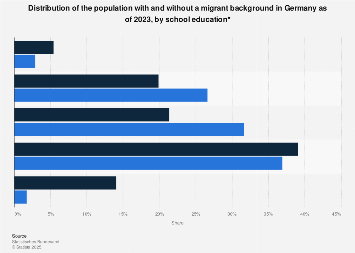A study by Germany’s Federal Statistical Office (Destatis) has revealed that individuals born in 1990, the year of German reunification, show a significant presence of migration backgrounds. Among this cohort, 36 percent have a migration background, compared to 26 percent across Germany’s total population. The data highlights broader demographic changes, with one in three young adults aged 20 to 39 now originating from migrant families.
The report notes that around 80 percent of those with a migration background in the 1990 birth group arrived in Germany after reunification. This trend accelerated following Chancellor Angela Merkel’s 2015 decision to open borders during the European migrant crisis, leading to an influx of over 1.5 million refugees between 2015 and 2020. Chain migration further reshaped Germany’s social and cultural landscape.
Economic and social challenges have emerged alongside these shifts. Data from the Federal Employment Agency shows 33 percent of long-term unemployed are migrants, while 60 percent of welfare recipients in 2023 have migration roots. Public opinion remains divided, with only 21 percent of Germans believing the country has managed migration effectively, compared to 41 percent who say it has not coped well.
The findings underscore growing demographic complexities in Germany, driven by sustained immigration and its societal implications.



